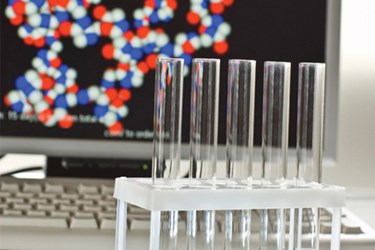Green Tea Ingredient Could Reveal New Cancer Treatment Possibilities

A new study published in the journal Metabolomics suggests that a key ingredient in green tea could unlock a whole new world of cancer-fighting research.
Green tea and its extracts have been promoted and advertised as a potentially powerful treatment against cancer and other diseases. But scientists have yet to give a clear explanation of how green tea and its extracts work to reduce the risk of cancer or impede growth of cancerous cells.
Researchers reported that green tea active biologic constituent EGCG changed the metabolism of pancreatic cells by inhibiting the expression of LDHA, an enzyme linked with cancer. The study also reported that another enzyme inhibitor oxamate also reduced LDHA activity though the same mechanism.
“Scientists had believed they needed a molecular mechanism to treat cancer, but this study shows that they can change the metabolic system and have an impact on cancer. By explaining how green tea's active component could prevent cancer, this study will open the door to a whole new area of cancer research and help us understand how other foods can prevent cancer or slow the growth of cancerous cells,” said Wai-Nang Lee, corresponding author of the study and a Los Angeles Biomedical Research Institute lead researcher.
The team used metabolic profiling methods to observe how EGCG upset the flux balance throughout the cellular metabolic network. Flux is defined as the rate of molecules turnover through a metabolic pathway. EGCG and oxamate both disrupted the flux balance, reducing risk of cancer by suppressing LDHA activity.
“This is an entirely new way of looking at metabolism," said Lee. “It is no longer a case of glucose goes in and energy comes out. Now we understand how cancer cell metabolism can be disrupted, and we can examine how we can use this knowledge to try to alter the course of cancer or prevent cancer,” said Lee.
